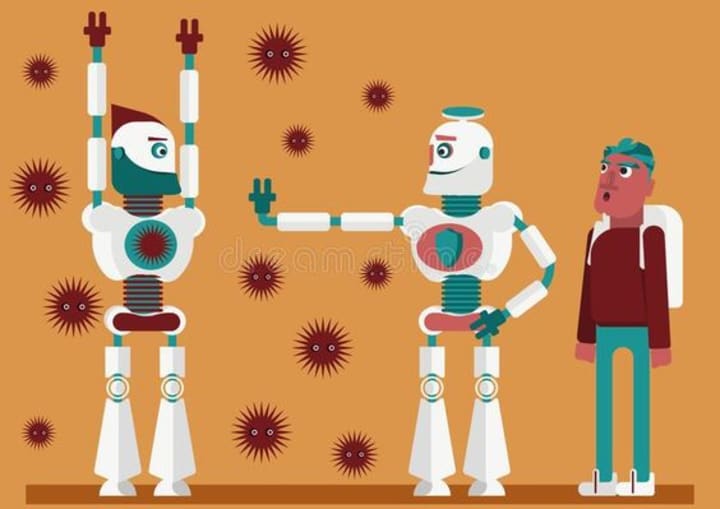
Artificial Intelligence (AI) has come a long way since its inception in the 1950s. It has revolutionized the way we live, work and communicate, and has the potential to change the world even further. With AI, machines can learn from experience and perform tasks that traditionally require human intelligence, such as visual perception, speech recognition, decision-making, and language translation. However, as AI becomes more advanced, there is a growing concern that humans may become too reliant on it, leading to a society of lazy individuals who are unable to function without the aid of machines.

AI has already had a profound impact on various industries, from healthcare to transportation to finance. In healthcare, AI can be used to predict and diagnose diseases, develop personalized treatments, and improve patient outcomes. In transportation, self-driving cars and trucks powered by AI are expected to reduce accidents, increase efficiency, and decrease traffic congestion. In finance, AI can analyze vast amounts of data to detect fraud, make investment decisions, and provide personalized financial advice.
However, while AI has the potential to make our lives easier, it also poses a threat to the workforce. Automation powered by AI can replace jobs that traditionally require human labor, such as factory work, customer service, and even some forms of white-collar work, such as accounting and legal research. This can lead to widespread unemployment and economic inequality, as those who are unable to adapt to the changing job market are left behind.
Furthermore, there is a concern that as humans become more reliant on AI, they may lose their ability to think critically and creatively. AI algorithms are designed to provide solutions to problems based on pre-existing data sets, but they lack the ability to think outside the box or come up with original ideas. Humans, on the other hand, have the capacity for innovation, imagination, and empathy, all of which are essential for progress and growth.

So, how can we ensure that humans continue to use AI to their advantage without becoming overly dependent on it? The key is to strike a balance between the use of AI and human intelligence. Humans must continue to develop their critical thinking and problem-solving skills while also learning to use AI to augment their abilities.

One way to do this is through education. Schools and universities should teach students not only how to use AI but also how to develop their own cognitive abilities. This can be done through courses that focus on critical thinking, creativity, and empathy. Students can also be encouraged to pursue careers in fields that require human intelligence, such as the arts, humanities, and social sciences, which are less likely to be automated.

Another way to ensure that humans continue to use AI to their advantage is to develop AI systems that are transparent, ethical, and accountable. AI algorithms should be designed with transparency in mind, so that humans can understand how decisions are being made. They should also be designed with ethical considerations, such as fairness and non-discrimination, to prevent unintended consequences. Finally, AI systems should be accountable, with clear lines of responsibility and oversight, to prevent abuse and ensure that humans remain in control.

In conclusion, AI has the potential to transform our lives in countless ways, but it also poses a threat to our ability to think critically, innovate, and create. To avoid a society of lazy individuals who are overly reliant on machines, we must strike a balance between the use of AI and human intelligence. This can be achieved through education, the development of ethical and accountable AI systems, and a commitment to using AI to augment human abilities rather than replace them. By doing so, we can ensure that the evolution of AI leads to a brighter future for all.
About the Creator
Marliya M
Hi, I'm Marliya. I'm a UG student who is passionate about content writing.On my page, you can expect to find articles about Education and learning ,Technology , Entertainment and more. I look forward to connect with you through my writing.






Comments
There are no comments for this story
Be the first to respond and start the conversation.